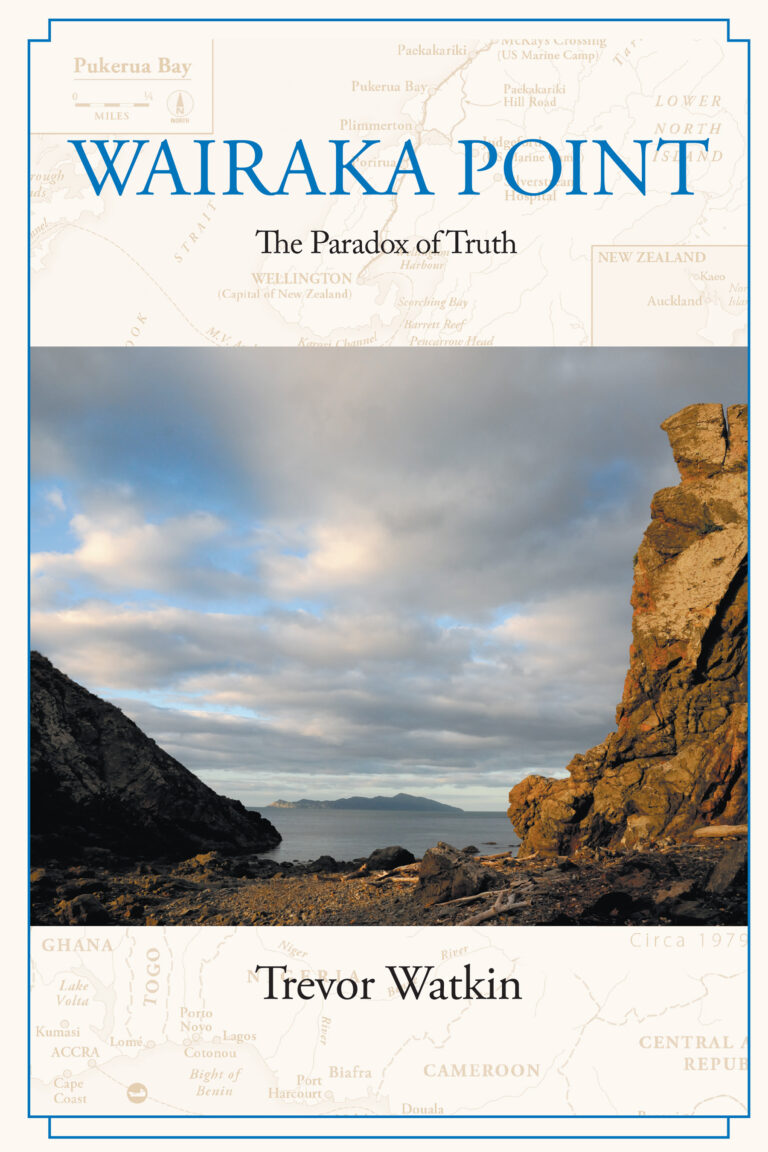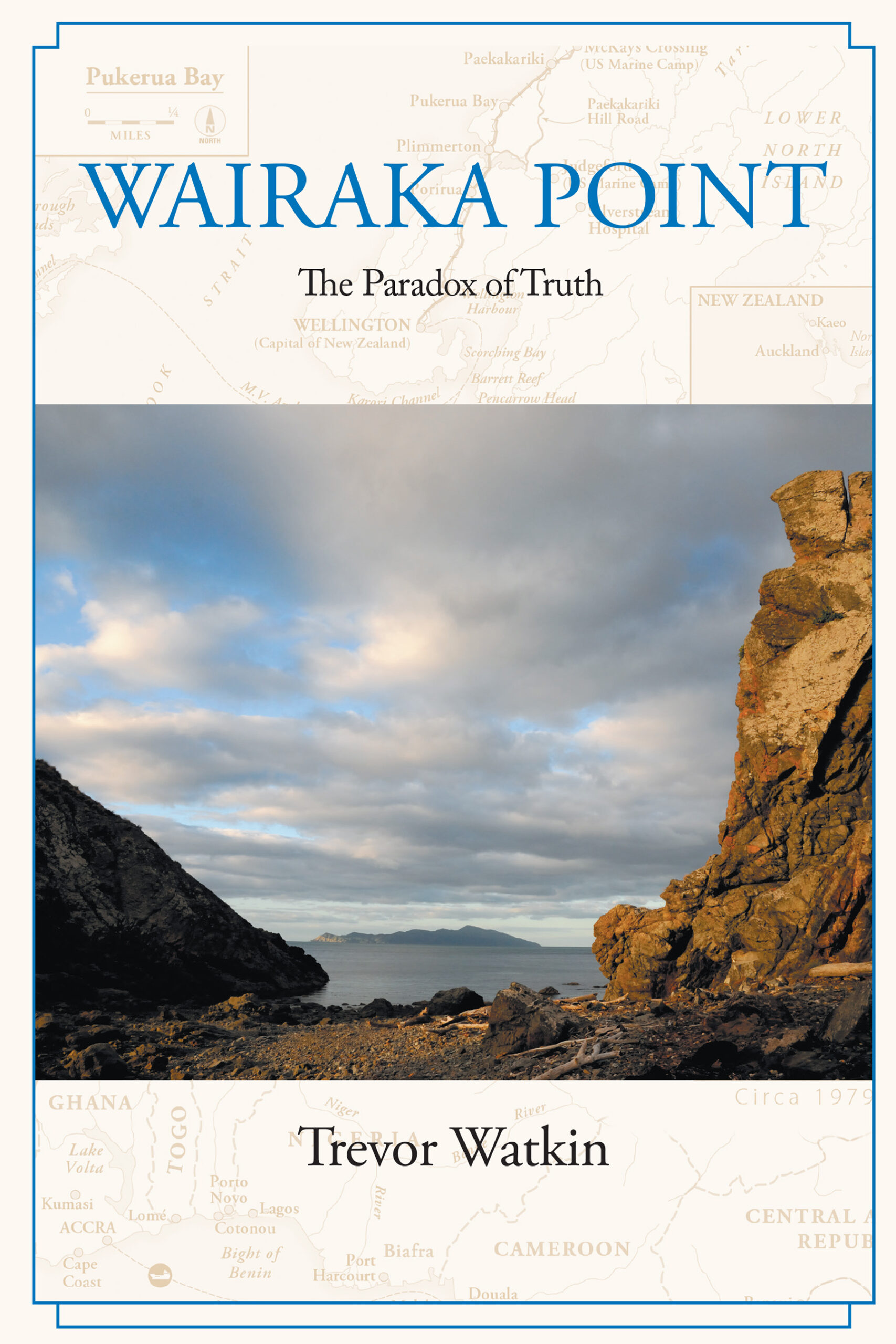Trevor Watkin’s WAIRAKA POINT: The Paradox of Truth looks to observe received conventions of setting and characterization in service of a story primarily set in late twentieth-century New Zealand, Australia, and Africa. What emerges is an elegiac tale of family ties and romance—but also a novel whose meandering plot never quite seems to work out what it wants to be.
The main characters are Nick and Stella—the former a New Zealander law school dropout, the latter raised in what was known in the 1960s as Rhodesia and who loses both parents young. Their paths briefly cross in the 1970s, during Nick’s sojourn to Africa. Author Trevor Watkin is excellent at scene-setting. The backstories of Nick and Stella unfold neatly and elegantly; expository writing of this caliber is hard to find. A major problem, however, is that for most of the first third of the novel, exposition does duty for plot. There is so much of it, in fact, that the lede gets buried: one never quite works out which of the many details are important to the story; and before long, one wishes the minutiae of Nick and Stella’s early years would be sacrificed in favor of having their paths cross a little sooner.
Once it gets going, the story is difficult to define. Whether together or apart, Nick and Stella’s adventures cover a remarkable array of settings and scenarios. The pair work dead-end jobs, have risky sex with strangers, move from country to country, find themselves in the middle of a coup, and so on. At times the book resembles travelogue, at others sounding more like a low-key thriller (Nick, who is part Māori, falls foul of a racist acquaintance who incriminates him at one point). The impermanence of Stella’s life feels like it could develop into a feature—having been orphaned, she pines for the settled background that Nick takes for granted—but this theme never coalesces.
More mileage might be found in the novel’s exploration of relationships, with Stella surrounded by examples of transactional love—her aunt Stephanie’s expeditious marriage to a travel agent tycoon is a case in point, and even Stella’s own tryst in Africa prior to meeting Nick is carried on for convenience’s sake—yet she believes in romantic love nonetheless. However, this theme is badly overwrought, with Stella convincing herself to travel halfway across the world, rescue Nick, take him to Rhodesia, and propose marriage, all on the strength of a single kiss shared before they parted. It is peculiar to see Stella—a careerist, worldly-wise, and with many notches on the bed-post, just like Nick—obsessing like a giddy schoolgirl over this possibility.
Stella does indeed propose, stopping only to show Nick the space on her family tree where she has penciled in both their names and left a space for children, giving off some alarming Obsessed Girlfriend-meme vibes in the process. Astoundingly, Nick does not run a mile at this point. Rather, he convinces himself on the strength of a lengthy gaze into a mirror that “there was a rightness” about the two of them being together and that “they were two halves”—in spite of the fact that they barely know each other. This is not believable. Moreover, the “mystery” in the novel’s final third is shoehorned into the narrative and poorly set up.
I suppose partners do get together in the manner of Stella and Nick once in a blue moon, but not so creepily and unconvincingly. The development only serves to prove that, without convincing motivations, even the liveliest narratives can fall flat.
WAIRAKA POINT: The Paradox of Truth by Trevor Watkin covers an extraordinary amount of ground, including romantic drama, travelogue, and low-key thriller, but suffers from a meandering plot.
~Craig Jones for IndieReader


